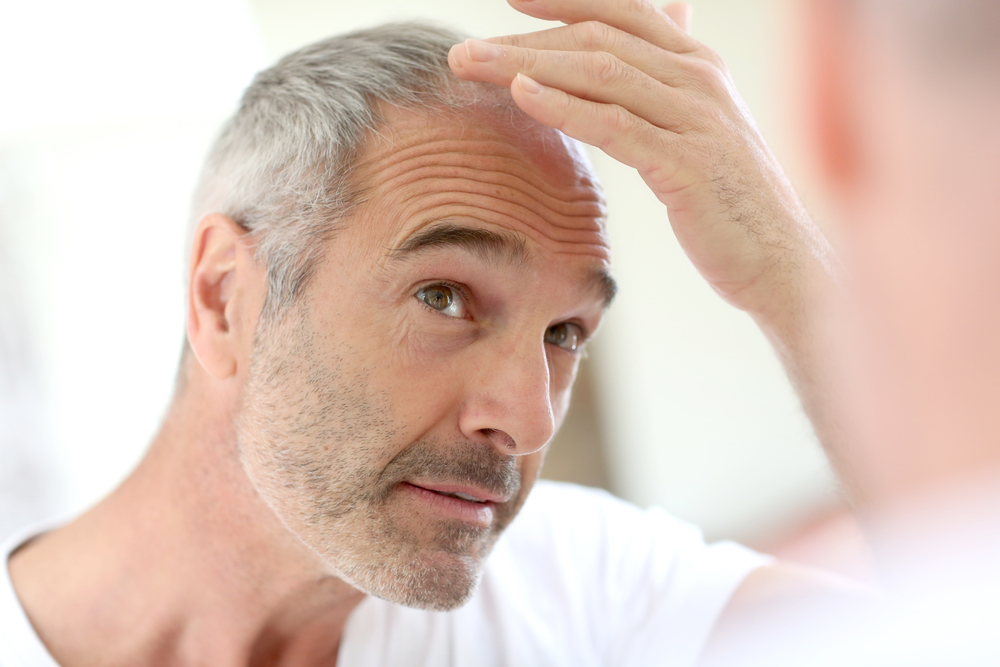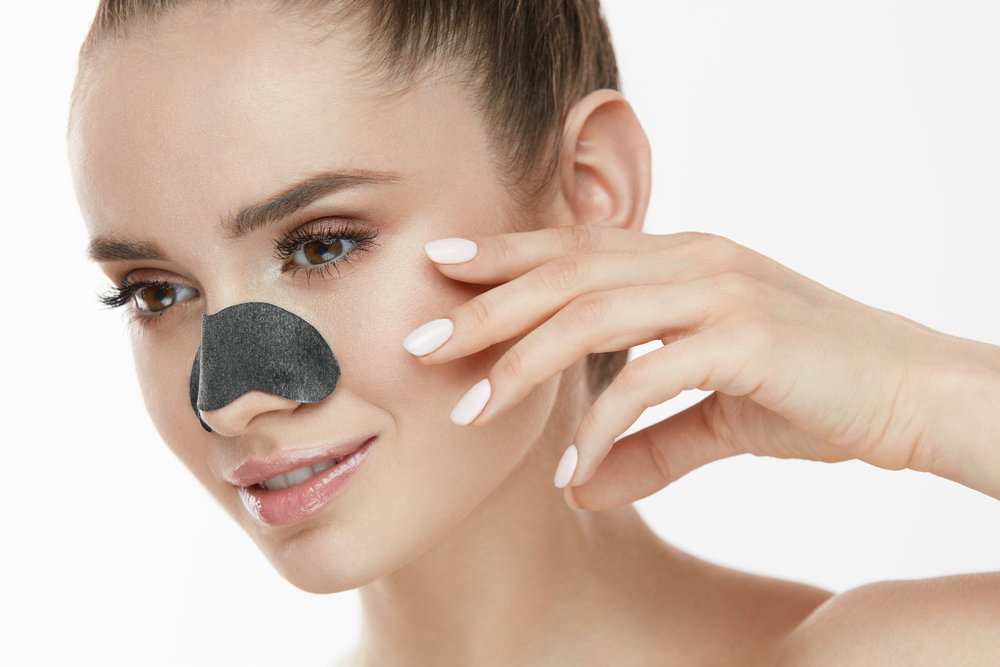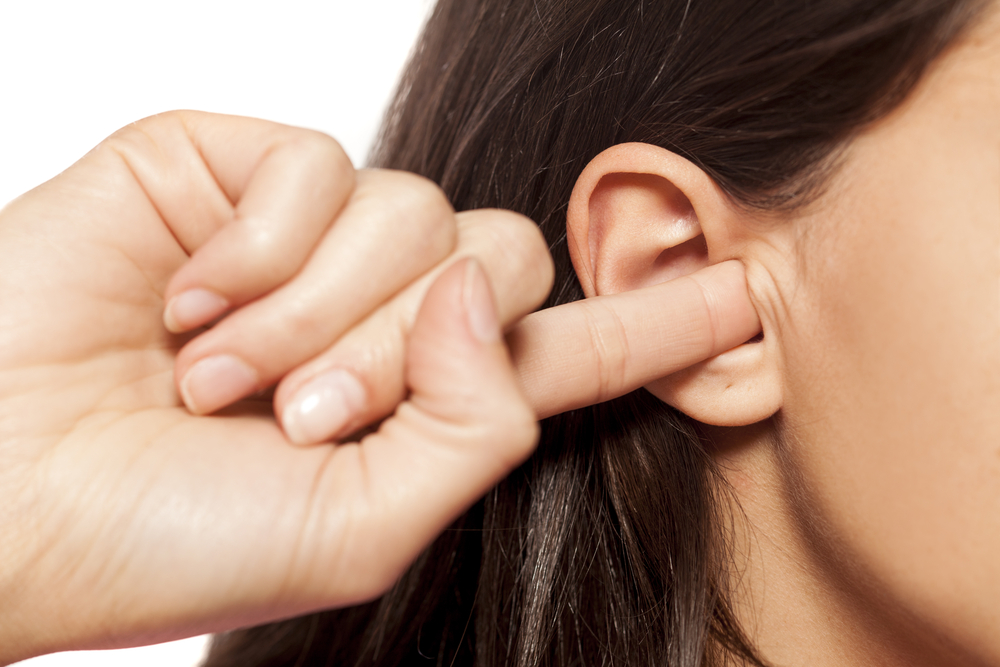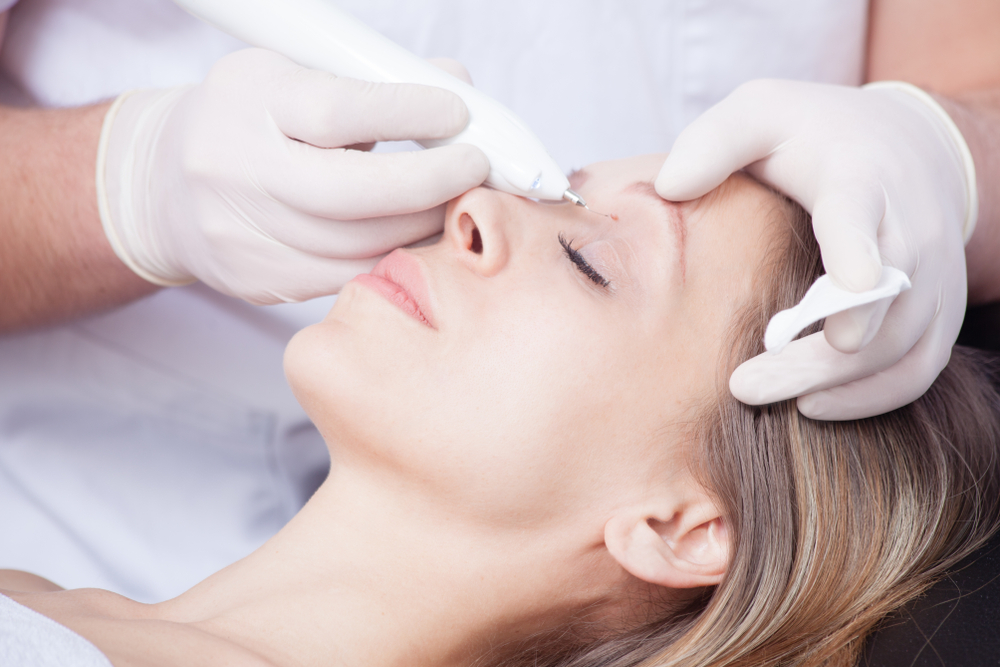- DHT blockers counteract the effects of testosterone, a hormone associated with hair loss.
- It’s important to start using a DHT blocker at the first sign that your hair is thinning.
- Prescription drugs are said to be most effective, although they may cause serious side effects.
What is DHT?
Dihydrotestosterone (DHT) is a hormone that stimulates the development of male characteristics and results from the conversion of testosterone. This conversion process occurs in both men and women.
“Almost 10% of the testosterone produced daily by an adult is converted to DHT,” notes Craig Nabat, founder of the iRestore Laser Hair Growth System.
DHT also promotes hair growth on the chest, back and underarms. On the scalp, DHT causes hair follicles to shrink or miniaturize, which translates visually to hair loss. This loss may begin at the hairline or on the top of the head (the crown), where the hair follicles are particularly sensitive to DHT.
DHT receptor binding
Your degree of sensitivity to DHT has an influence on how successful you will be in keeping your hair. It was originally thought that testosterone levels were the main culprit in hair loss, but it is now believed that the degree of DHT binding to the receptors in scalp follicles is the real problem.
“High levels of DHT may have an adverse effect on hair follicle health and function, causing them to shrink over time, or perhaps to weaken completely,” Nabat explains. “This sets the miniaturization process into gear.”
Ultimately, the shrunken hair follicle becomes unable to sustain normal hair growth.
How DHT blockers work
DHT blockers work by addressing the root cause of hair loss. They inhibit the 5-alpha-reductase (5-AR) enzyme responsible for the hair miniaturization process. An increase in 5-AR levels converts more testosterone to DHT, resulting in greater hair loss.
Blockers fall into three primary categories: prescription hair loss medications, non-prescription products, and certain foods. All of these work by preventing the conversion of testosterone to DHT. As noted earlier, DHT causes thinning of the hair on the scalp, so blockers essentially help the body to limit DHT production.
Prescription meds to prevent hair loss
Most of us can identify at least one hair loss prevention medication — minoxidil, for example (best known under the brand name Rogaine). However, only two prescription medications are truly classified as DHT blockers: finasteride (marketed as Propecia or Proscar), and dutasteride (Avodart).
Propecia (finasteride)
Finasteride is a type one and two 5-AR inhibitor that works by lessening the amount of DHT your body produces. The benefits of this medication are two-fold: it minimizes hair loss and prevents the prostate gland from becoming enlarged in a condition called “benign prostatic hyperplasia.”
Dr. Steve Brown of Las Vegas acknowledges that finasteride has been proven to improve hair growth. However, he says, “I will only prescribe the medication if the patient has already been on the drug and had no complications — real or perceived.”
Avodart (dutasteride)
Dutasteride is a type two 5-AR inhibitor and like finasteride, can be used to treat an enlarged prostate. It is prescribed to treat hair loss in men and also combat excessive hair growth in women. It has similar side effects to finasteride.
Importantly, Avodart should not be used in women who are pregnant or intending to become pregnant. In fact, it is even advisable that pregnant women not come into contact with broken pills since this may pose a risk to the fetus.
What are the side effects of DHT blockers?
According to Dr. Brown, 1-4% of patients experience side effects from prescription DHT blockers, ranging from a temporary decrease in libido to reported permanent impotence even after discontinuing the medication, a condition known as Post-Finasteride Syndrome. In addition, some patients may experience cognitive issues, depression and cardiovascular disease.
Products available at your pharmacy
If you prefer not to get a prescription drug and deal the with potential side effects, have a look at the many products available at the drugstore. From shampoos to supplements, your pharmacist has you covered.
DHT shampoos
Shampoos cannot be considered a miracle cure for hair loss, but they have proven effective in slowing down the process by blocking DHT production and improving hair follicle health.
When shopping for a hair loss product, look for the following ingredients that are linked to disrupting the DHT pathway:
- Caffeine to counteract DHT’s role in reducing hair follicle size while potentially increasing hair shaft length.
- Ketoconazole to increase the number of hair follicles and contribute to hair thickness (pick a product with at least 2% of this antifungal agent).
- Biotin to help strengthen hair follicles.
- Saw palmetto to slow hair loss by blocking the 5-AR enzyme, which in turn decreases DHT and increases hair growth.
DHT supplements
Saw palmetto is also available as a supplement, in capsules or tablets, leading a growing list of supplements available that includes:
- Pumpkin seed oil, a good source of alpha linoleic acid, which might lower DHT levels and appears to increase average hair count.
- Rosemary oil, a powerful antioxidant that stimulates hair regrowth.
- Beta sitosterol, a plant extract from the phytosterol family, is considered a natural 5-AR inhibitor that blocks or slows DHT production.
- Green tea is another potent antioxidant that reduces DHT levels.
- Soy isoflavones that target DHT by regulating cholesterol levels.
- Stinging nettle that works in much the same way as saw palmetto — by blocking 5-AR activity.
- Pygeum (African plum tree) is believed to block 5-AR but results are not conclusive.
Note, although they are not supplements, argan oil and emu oil have also shown some effectiveness in fighting hair loss and should be available at the pharmacy.
Buy smart and do your homework
There are a few important factors to consider before purchasing a product to combat hair loss. If the label makes what sounds like a too-good-to-be-true claim, check if it is backed up by clinical evidence. Remember, a higher price tag is no guarantee of effectiveness as premium prices don’t always translate to premium quality.
Using a supplement or shampoo in combination with a DHT-blocking medication might enhance hair growth. Talk to a pharmacist or dietitian before selecting any product, and make sure that these products do not interact with any prescription medications you are taking.
DHT blocking foods
One effective way to combat hair loss is to make some changes to your diet, which can help the body reduce the effects of DHT and may also promote fuller hair growth.
Among the list of foods that may help reduce hair loss, here are a few that you can easily find at the grocery store:
- Nuts (almonds, cashews, pecans, peanuts, pumpkin seeds, walnuts) contain l-lysine, an amino acid that inhibits 5-AR and decreases DHT levels.
- Fruits (bananas, mangos, watermelons, tomatoes) that contain lycopene, which is a DHT inhibitor.
- Green vegetables (kale, swiss chard, spinach) along with beef, chicken and lamb, which contain zinc that is known to inhibit DHT.
- Egg yolks, liver, oysters and tuna may also have DHT-blocking characteristics.
Takeaway
Hair follicles that have been badly damaged by DHT won’t continue to produce healthy hair, but follicles that are still producing even small amounts of thin hair might be encouraged to start producing more with the right level of DHT inhibition.
It’s important to start using a DHT blocker at the first sign that your hair is thinning and to use them as and when instructed. Ultimately, using them less frequently than recommended will not help support your hair loss prevention goals.
If you do want to try a prescription medication, talk to your doctor about risk factors that may pertain to you so you can avoid any adverse reactions that are by far more serious than hair loss.










